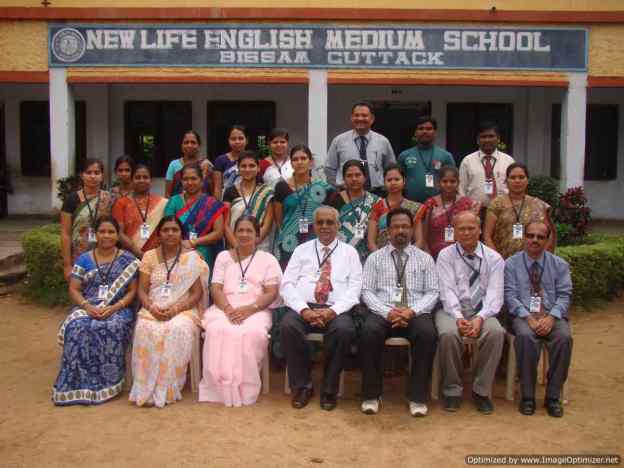2 Corinthians 4: 6-7
For God, who said, “Let light shine out of darkness,” made his light shine in our hearts to give us the light of the knowledge of the glory of God in the face of Christ. But we have this treasure in jars of clay to show that this all-surpassing power is from God and not from us.
Message:
 These days there is one thing that I am bothered the most. Every morning the intensity of botheration increases manifolds when I look at my pillow. Sleeping on white bed sheets is a nightmare. Well I am talking about the rampant hair fall and the deforestation of my scalp at an alarming rate. I always try to camouflage my hair to hide my now evident baldness. Now this is a very evident tendency in us to hide our flaws and stains. We would like to portray a picture perfect scenario, with all creases ironed and all flaws brushed under the carpet praying that it never surfaces again. Long back there was an ad that fascinated me and let me take this time to jog your memory along by narrating the ad. A brother and a sister are returning from school and sister falls in a puddle of muck and starts crying and brother in a bid to pacify her, pretends to beat up the puddle of muck and gets dirty in the process. He yells “Say sorry say sorry” and in the end he declares “He has told sorry (Sorry bol raha hai)”. Seeing the brother too with stains of muck all over sister smiles. And there is this famous tag line in the background “Daag Ache Hote Hai (Stains are good)”. This was the classic tagline of Surf Excel.
These days there is one thing that I am bothered the most. Every morning the intensity of botheration increases manifolds when I look at my pillow. Sleeping on white bed sheets is a nightmare. Well I am talking about the rampant hair fall and the deforestation of my scalp at an alarming rate. I always try to camouflage my hair to hide my now evident baldness. Now this is a very evident tendency in us to hide our flaws and stains. We would like to portray a picture perfect scenario, with all creases ironed and all flaws brushed under the carpet praying that it never surfaces again. Long back there was an ad that fascinated me and let me take this time to jog your memory along by narrating the ad. A brother and a sister are returning from school and sister falls in a puddle of muck and starts crying and brother in a bid to pacify her, pretends to beat up the puddle of muck and gets dirty in the process. He yells “Say sorry say sorry” and in the end he declares “He has told sorry (Sorry bol raha hai)”. Seeing the brother too with stains of muck all over sister smiles. And there is this famous tag line in the background “Daag Ache Hote Hai (Stains are good)”. This was the classic tagline of Surf Excel.
Why am I telling all this? Where am I heading towards? As a priest of the Mar Thoma Church, I have been extremely proud of my faith, my church and its positions. I am very clear about the flaws of my church and my role as a priest. But with all my pretense of being welcome to criticism, my wife very well knows that it is just hogwash. Her experience in critiquing my sermons have not been very pleasant to say the least. Being defensive is my birthright and pouting thereafter is my spiritual gift. I have heard a lot of youths in youth conferences critiquing the church and asking very uncomfortable questions. I always thought I would be very gracious to such criticism and open to a dialogue thereafter. But more I hear criticisms, I have been compelled to portray a very romantic picture of faith, the church and its practices. I wax eloquent about many things which I critique in private. Why do I do this? Well my faith and Church is an extension of who I am, and I cannot tolerate any flaws and I try to cover it up. As a priest, we are kept on a pedestal, not because of who we are, but what relation we have in congruence with the church. It at times becomes very intoxicating to see people stand up when you enter a room. To know that line at a food counter starts from where you stand. It is fascinating to know that no matter how boring a speaker you are, people listen and latch on to your words, because you are a priest. In vote of thanks and welcome speech you hear eulogies about you, qualities that you never knew you had and as my wife says “Only I know who you are” and I pretend to not have heard that. No matter how shallow your personal faith is, people believe in your prayers and are convinced about your ‘rock solid faith’. With all these so called cultural ‘perks’ attached, one tends to get an ‘entitlement syndrome’ and therefore any criticism regarding church, priest and its role becomes very sensitive. As a parish priest I have become more and more authoritarian to run the show. All those who do not come to church or do not subscribe to my views are not committed to faith I conclude.
With such a background let us come to our bible portion for today. ‘Treasures in Jars of Clay’ is a wonderful metaphor that sums up the ministry that God has called us as humble servants. We are Jars of Clay that may be unattractive, flawed, cracked or out of symmetry. But what matters is the treasure of the gospel that we carry. But it is this vulnerability and brokenness that truly shows us what this church is, and what is the ministry that we are called to minister. Henri Nouwen, a Dutch Catholic Priest very poignantly says “The church is holy and sinful, spotless and tainted. The Church is the bride of Christ, who washed her with cleansing water. But the Church too is a group of sinful, confused, anguished people constantly tempted by the powers of lust and greed and always entangled in rivalry and competition.” And then he perfectly sums it up by saying “Church is a community of grace that celebrates the love of Christ. But Church needs to ask forgiveness for failing to be such a community.” Writer Donald Miller in his book ‘Blue Like Jazz’ narrates a story from his life. He and a group of Christians from his Church set up a confession booth in a raucous campus college festival at Oregon, USA. But in a twist of event, Miller and fellow Christians used the booth as a way of confessing their own sins to the skeptical students. They apologized for the mistakes of the church and the belief in which they preached but failed to practice. Miller who is the pastor summed up the confession to one of the confused students “Jesus said to feed the poor and heal the sick. I have not done very much about that. Jesus said to love those who persecute me. I tend to lash out and demonize all those who challenge me. I know a lot of people will not listen to Christ because of people like me who pretend to be his guardians. I am not guarding Christ. I am just covering up myself from being exposed. Please forgive me.”
I feel a similar soul searching needs to be done by all of us. I am sorry for judging those who do not fit-in my concept of faith. I am sorry for not answering difficult questions about Church. I am sorry for belittling your curiosity and sense of justice. I am sorry for pretending that everything is fine with the church and the only problem is with the people like you who ask such stupid questions. I know that it is not perfect, I know it is broken and it needs your forgiveness so that we engage together to make it “The Bride of Christ.” The people who are outcasts of the church, and I am important component in creating these outcasts, are the same people Jesus engaged with and shared lives and table with. I am sorry for the hypocrisy and double standards of faith. John Updike is right when he says “ ‘Church bears the same relation to God that billboards do to Coca- Cola: they promote thirst without quenching it.”
Daag Ache Hai. Stains are good. This is very evident in the logic of the 3rd Part of the Fourth Blessing of the Mar Thoma Qurbana. . Before ending the Qurbana, the priest says “ Belahaneenanum Paabiyum aayi njaan…..” “Pray for me my brethren, weak and sinful as I am……..” There is no need to hide the stains. There is no need to hide your brokenness. This brokenness shows that we priests and the church we represent are weak and sinful, and we need your forgiveness and prayers. There was a research done about the most loved sentences that one loves to hear and first one on the list is “I Love You.” Most of the people voted for this magical word. The second on the list was “I forgive you”. People long for forgiveness no matter how much they long to pretend an “I care a damn.” And third on the list is very surprising. It is “Supper is ready.” The hunger for that word is a reality. In short that is the Gospel where God says “I Love You”, “I Forgive You” and “Feast is ready- I offer my body as bread and blood as wine.” This is what Church is supposed to yell from the rooftops. If the Church does not broadcast this great news- the Jar of clay needs to be broken to be remolded.
So I went down to the potter’s house, and I saw him working at the wheel. But the pot he was shaping from the clay was marred in his hands; so the potter formed it into another pot, shaping it as seemed best to him. Then the word of the Lord came to me. He said, “Can I not do with you, Israel, as this potter does?” declares the Lord. “Like clay in the hand of the potter, so are you in my hand, Israel.” Jeremiah 18: 3- 6
Rev Merin Mathew
Bethel Mar Thoma Church,
Kolar Road, Bhopal
(This is less of a note and more of a dialogue with myself and the ones who will read this. Please feel free to add, contradict, critique (though I don’t take that too well, so do it on your own risk)



 the heart and said to Peter and the other apostles, “Brothers, what shall we do?”
the heart and said to Peter and the other apostles, “Brothers, what shall we do?” if you give elephant but do not give anyone hope). The hope of resurrection is a very risky business. So when we say “Happy Easter” remember, the day of resurrection was a day of great joy and great fear. Resurrection of our Lord said “No force in the world can arrest our Lord in a tomb. He is not where people expect him to be. He goes ahead of us. Following him is risky and very stupid. Are you stupid enough to follow him to Galilee?
if you give elephant but do not give anyone hope). The hope of resurrection is a very risky business. So when we say “Happy Easter” remember, the day of resurrection was a day of great joy and great fear. Resurrection of our Lord said “No force in the world can arrest our Lord in a tomb. He is not where people expect him to be. He goes ahead of us. Following him is risky and very stupid. Are you stupid enough to follow him to Galilee?


